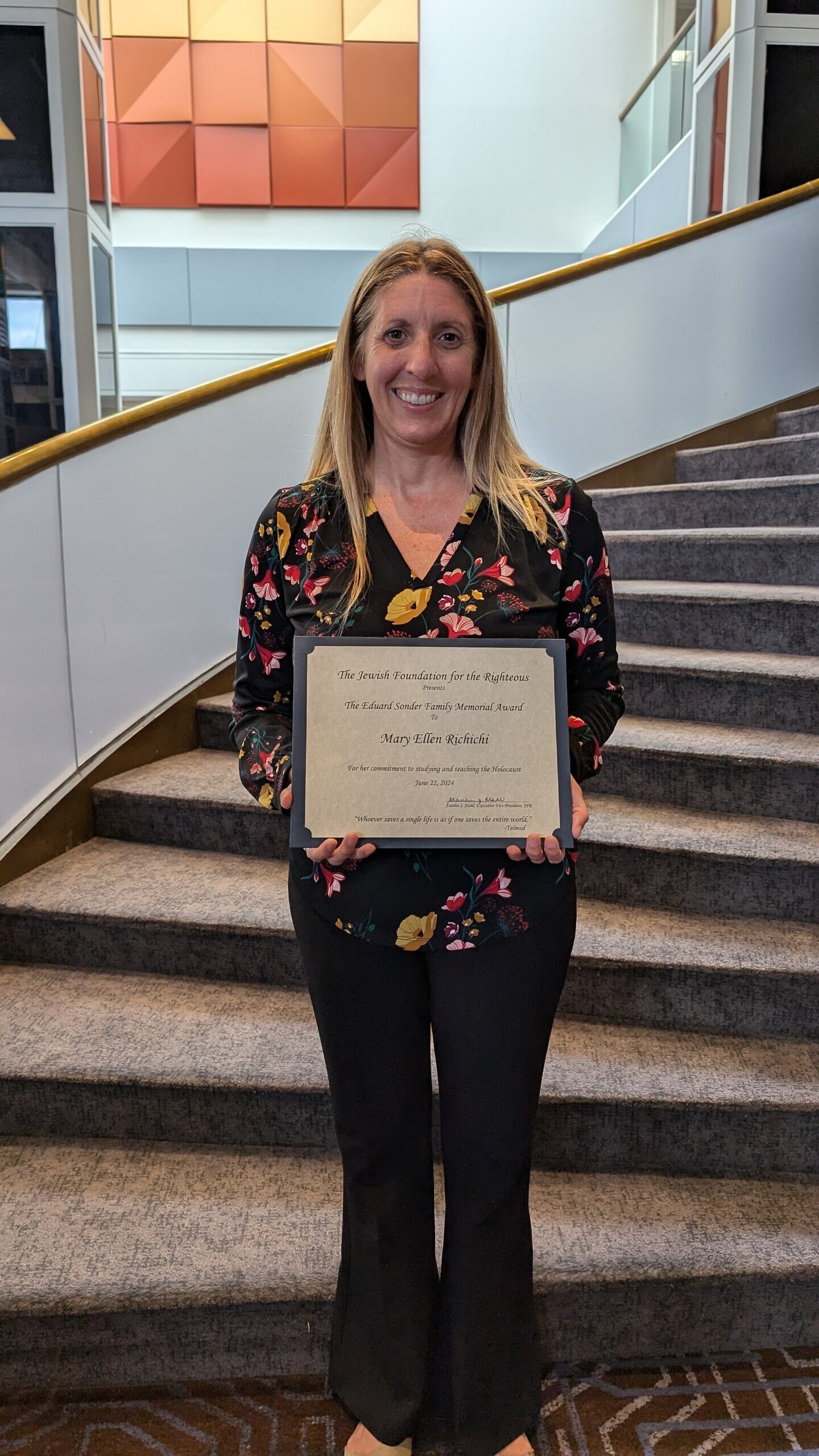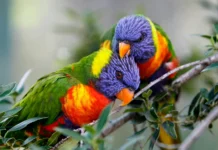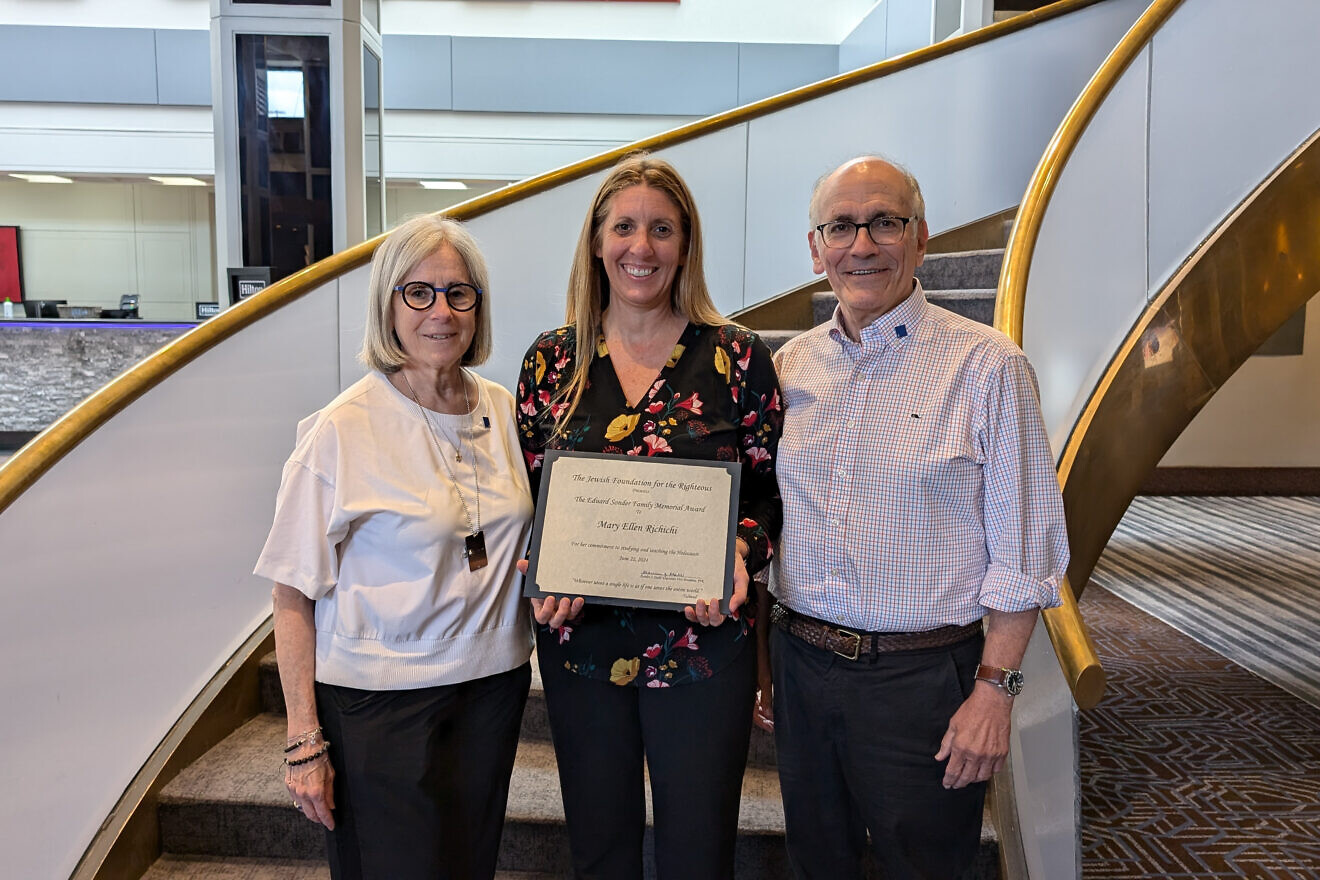Mary Ellen Richichi, a non-Jewish middle-school teacher in the Florida public school system, grew up immersed in Holocaust education. Her father, who served in the U.S. military during the Cold War, was always watching History Channel documentaries about World War II.
“I’ll never forget, I was probably about 7 or 8, and he said to me, ‘Holocaust and World War II is one of the events you need to know and never forget,’” Richichi told JNS.
Her father passed what she called his extensive immersion in history on to her, which led her to “want to know more and just read as much information as I can about it.”
Richichi is passing that curiosity—particularly, about the Holocaust—along to her students at Independence Middle School in Jupiter, Fla. And as a result, the Jewish Foundation for the Righteous recently recognized her for that instruction with its 2024 Eduard Sonder Award.
“Mary Ellen is an exceptional educator who has demonstrated an outstanding commitment to teaching the Holocaust,” stated Stanlee Stahl, executive vice president of the nonprofit, which provides financial support to Righteous Gentiles who saved Jews during the Holocaust.
“Great work, Mrs. Richichi!” Independence Middle School said. “We are grateful for the education and experiences you bring to the students.”
Not only that: Along with a group of other educators, she was chosen as a 2024 Alfred Lerner Fellow and participated in the JFR’s Summer Institute for Teachers, an intensive five-day course this past June delving into the complex history of the Holocaust and discussing new teaching techniques for introducing the subject into their classrooms.

‘Everyone needs to know about it’
Richichi, who will begin her 20th year as a teacher this fall, told JNS she was “extremely surprised” to win the award.
Before creating a course about the Holocaust, she wove the history of the Shoah in her other classes.
“Holocaust education has always been essentially an important part of any grade I was teaching,” she said. “Whether it was elementary—I started in elementary, and I was fusing Holocaust studies in—then I was moving up the grades in elementary, and I was still implementing it.”
When she started teaching junior high, Richichi didn’t find an elective course on the Holocaust, so she opted to make one.
“My administration was seeing how I was able to balance and merge, still keeping up with what I had to teach, but also adding a lot of content to it,” she told JNS. “They saw the relevance to it on a modern and historical level.”
When she raised the prospect of a Holocaust elective with one administrator who has a military background, the latter, “without any hesitation,” replied: “Absolutely. Everyone needs to know about it,” she told JNS.
‘Navigate some of those complicated questions’
In Richichi’s Holocaust course, there is no homework. The only assignment is that students have to talk about the class. They seem to do that, she told JNS.
Richichi lives in the community in which she teaches and sees many of the parents, students and former students outside of school.
“They’ll be like, ‘Hey, my child just told me about—’ and they’ll start sharing,” she told JNS. “What I want my students to do is to talk about it.”
“I want them to educate the older community,” she added.
Students have posed many questions about the Holocaust and Israel in the days and months after Hamas’s terrorist attacks in southern Israel on Oct. 7.
“Being in middle school, they did have a lot of questions, and they had a lot of confusion too,” due to the news coverage, Richichi told JNS.
“They didn’t know what avenues to trust,” she said.
Richichi drew on seminars she’s attended and other resources to “help me kind of navigate some of those complicated questions that they had.”
At the summer institute in June, for example, she told JNS that she learned about a technique of blending diaries and memoirs, and their narratives, into Holocaust instruction.
The course has been attracting many new students, and Richichi hopes to grow the two electives on the Holocaust that she teaches to five.
“I just would like to teach it continuously,” she said. “I know it’s going to get there because, as I was told, I am the second highest elective choice behind physical education.”


























